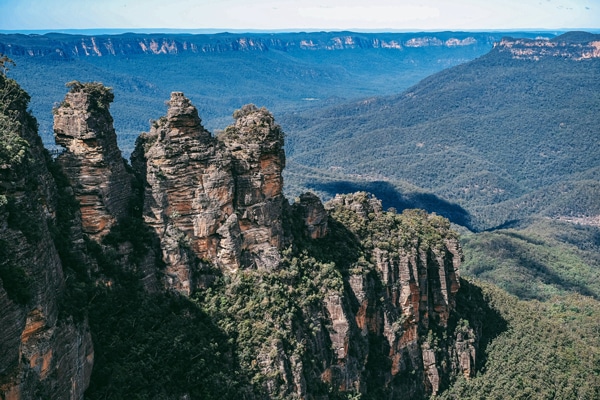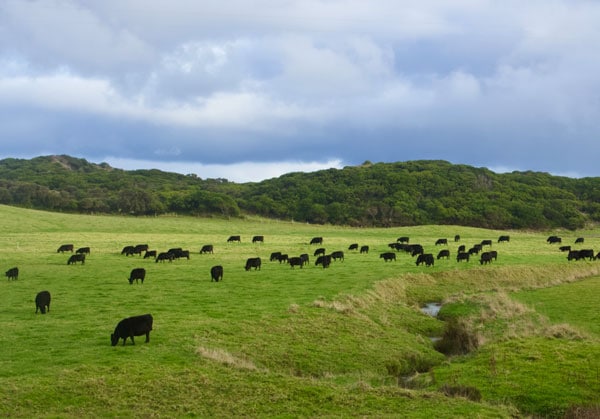We all know how dependent we are of the Internet. Our bank account, contact details, grocery lists and sometimes even entire livelihood heavily depend on the continued existence of the Internet in our lives. Imagine one week without the Internet – accounts will freeze, we may not be able to call our dear friends and our Bitcoin wallet may prove useless and unreachable. Of course, it may sound extreme – but that seems to be the nature when it comes to the virtual world. It amplifies both the best and the worst of scenario, notwithstanding human nature. We see both cases of vocal advocates and silent observers, supporters and haters, acceptance and exclusivity online. Really, it is simply reflecting our own nature at its best and worst. With that in mind, let us explore further how the Internet has evolved – and how it has forced us to evolve as well:
The First Functioning Computer System

Messy, large and imposing, around 167 square meters of area was sacrificed to house 20,000 vacuum tubes and more components totalling around 50 tonnes in 1946. What for? Known as the ENIAC, it was the first fully functional digital computer, whose primary purpose was to calculate artillery shell trajectories.
Major global conflict ended with World War 2, yet persistence of major powers’ foreign policies, proxy wars, politics and a technological race to get to space necessitated computer technology to advance to the state it is now.
It’s been a while since 1946 and the ENIAC, and now computers are much smaller and have evolved beyond just making counting easier. Rather, one could argue that its byproduct’s impact on society, as a whole, adds a layer of complexity as a species: the Internet.
Catapulting us into the 21st Century of the Information Era, the internet has impacted every aspect of society: communication, advertising, media, entertainment, news, and music, which in turn has created careers never before seen in human history ranging from online streamers, social media influencers, bloggers, and content creators.
Proliferation of media, inclusive of news and user created content created an era where information can spread worldwide to an astonishing degree with ease, ranging from the tragedy and political implications of 9/11 attacks to cat videos and Rick Astley’s “Never Gonna Give You Up” rickroll gimmicks. The early internet provided a platform for literally anyone and anything to capture the attention of the world regardless of time and space.
The Rise of Social Media

Often the older generation recalls the simplicity of pre-internet age. To learn and study, people would consult the local library and to find a date you would physically have to put yourself out there. News was obtained by radio and TV and the world was, by nature, more physical and direct. Has the internet really changed this fundamental structure of how people live?
Suppose a person wanted to find a new friend. If it was a race by analogy, the starting line would be meeting someone and the finish line would be a new friendship. However, there are two paths to reach the end of the race. The first path would be getting to know the person through physical conversations which leads to eventually building a bond and the second path would be meeting the person online and building that same bond. Both paths are different, but both lead to the finish line. This is what the internet provides: different options (and sometimes better options).
What is clear, though, is that the ease of online communication and collaboration is the defining positive. Maintaining long-distance relationships with families and friends are easier thanks to platforms such as Skype, WhatsApp, Discord, Facebook or Instagram and dangers such as natural disasters can be observed in real-time from social media.
No doubt the world feels much, much smaller when communication is being beamed via data packets at the speed of light. Information is almost excessive nowadays, as this in itself presents a double-edged sword.
A “Climate Aware” Society

Social media provides a platform for things to spread online and in particular the news on everything. Fact-checking can often take a backseat to what is perceived to be true by the masses, baseless rumours can turn into witch-hunts in cyberspace with very real consequences.
Nevertheless, this same level of mass interconnection could not come at a more concise time to discuss humanity’s own induced problem: climate change. A global issue on the rise, it is time to put away differences and pointless bickering when there is potential irreversible damage on the very planet itself.
The internet helps bring these issues to light (but not without its share of deniers), with plenty of research available to the public. Figures of an increase of global temperature by 1.6 degrees since 1906, seas rising by 3.2 mm every year and the melting of glaciers to 30 from 150 since 1910 from National Geographic really hammers down, what can be considered, an environmental turn of the century.
Obsession With Automation And Doing Things Virtually
As humanity discovers more powerful technologies, almost everyone sees what people from decades and centuries ago have been dreaming of. Robots take most repetitive tasks, devices become smarter with AI empowerment, and programs are set on autopilot doing most of the work.
As for our fascination with creating a make-believe environment, the new generation no longer needs to leave it to their dreams and imagination. Without leaving the lounge, we can explore space through virtual headsets, perfect our swings by playing golf simulators, and become expert drivers or pilots with more simulation programs.
While these advancements have their share of cons, humans seem decisive about going forward to keep up with the fast-paced world we’ve created.
Text: Akira Bhagawanta
Photo: Various sources




















